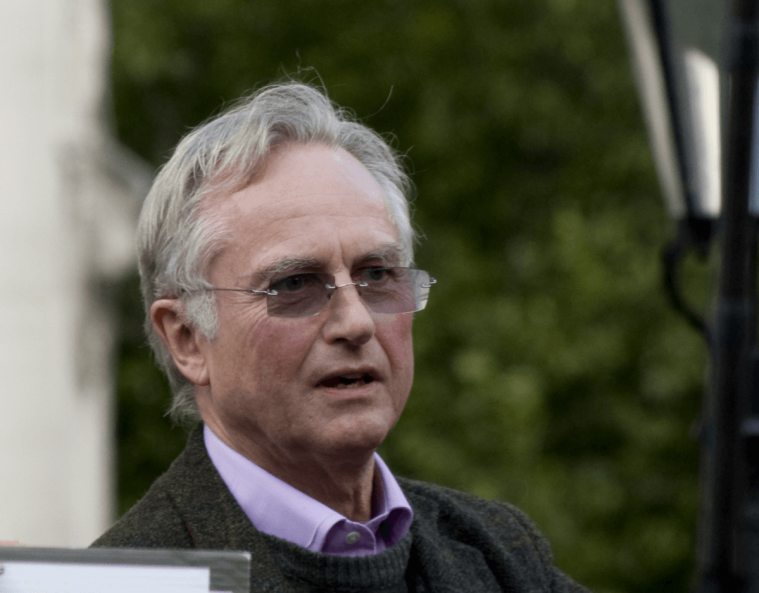The question Richard Dawkins cannot dodge
A few years ago the prominent British magazine The Spectator asked a series of well-known public figures whether they believed in the resurrection of Jesus Christ.
Perhaps the most surprising response came from controversial left-wing politician George Galloway, who said: 'Yes, I believe in the Resurrection. I believe God restored the life of Jesus of Nazareth and took him to his bosom. The example of suffering and sacrifice followed by vindication is central to my religious belief.'
Some replies were of course more predictable. The Roman Catholic Archbishop of Westminster responded: 'The Christian message stands or falls by this truth. Both the empty tomb and the witness of those first disciples who saw, ate and conversed with the Risen Christ highlight this. This is not only the core of my faith but it is also the faith of the Church, namely, of those countless millions who since that first Easter Sunday have believed and proclaimed that Jesus is Risen. Therefore, his life and what he promised bring meaning and hope for everyone.'

And then there was the prominent scientist and atheist Richard Dawkins, who had this to say: 'People believe in the Resurrection not because of good evidence (there isn't any) but because, if the Resurrection is not true, Christianity becomes null and void, and their life, they think, meaningless. From this it is grotesquely false logic to conclude that therefore the Resurrection must be true. The alternative – that their religion is indeed null and void – may be unpleasant for Christians to contemplate, but there is no law that says the truth has to be pleasant.'
Elsewhere he has said: 'Presumably what happened to Jesus was what happens to all of us when we die. We decompose. Accounts of Jesus' resurrection and ascension are about as well-documented as Jack and the Beanstalk.'
As we come to the final chapter of Mark's gospel on our fortnightly journey through this section of the New Testament, both unbelievers and believers are confronted with awkward issues. For those who would not describe themselves as Christians, there are the basic questions: 'What actually happened to Jesus after his execution? Can we know? And does it matter?' But for Christians, too, there are issues relating to the seemingly abrupt ending of Mark's gospel and also how it relates to the other New Testament accounts.
We'll consider the issues facing both unbelievers and believers in the next two columns in this series. But for now let us just be clear on how vital the question of the resurrection is. Indeed it could be said that wherever we are coming from in relation to faith, and however busy we are, it's arguably the most important matter we can ever think about.
For Christians, their faith stands or falls on this one thing. As the apostle Paul writes to some of the earliest followers of Jesus: 'If Christ has not been raised, our preaching is useless and so is your faith. More than that, we are then found to be false witnesses about God... And if Christ has not been raised, your faith is futile; you are still in your sins. Then those also who have fallen asleep in Christ are lost. If only for this life we have hope in Christ, we are of all people most to be pitied.' It's painful, but true: the entire Christian faith rests, ultimately, upon this one event.
But for those who would not describe themselves as Christians, the question is equally vital – for likewise their whole worldview is blown apart if there is a shred of truth in the resurrection of Jesus. It will no longer do to build a life upon anything other than Christ – be that pleasure, leisure, wealth, health or any alternative philosophy or set of beliefs – if he has indeed been raised from the dead.
Over the last few weeks I have been watching the 2017 film The Case for Christ ,which tells the true story of award-winning US investigative journalist Lee Strobel. An atheist, Strobel is outraged when his wife finds faith, and so sets out to disprove her new-found set of beliefs.
Recently Strobel has written: 'Here's what surprised me. Christianity invites investigation. The apostle Paul said if you can show that the miracle of the resurrection is mythology, make believe, a mistake, a legend or a fairy tale, then you are justified to abandon the faith. When the gospels report supernatural events, they aren't introduced with "Once upon a time..." Rather, they're reported in sober language, with specificity, and within a historical context that can be checked out.'
So what about you? Whether Christian or not, have you ever seriously thought about this most crucial of questions?
David Baker is a former daily newspaper journalist now working as an Anglican minister in Sussex, England. Find him on Twitter @Baker_David_A
The Rough Guide to Discipleship is a fortnightly series.











